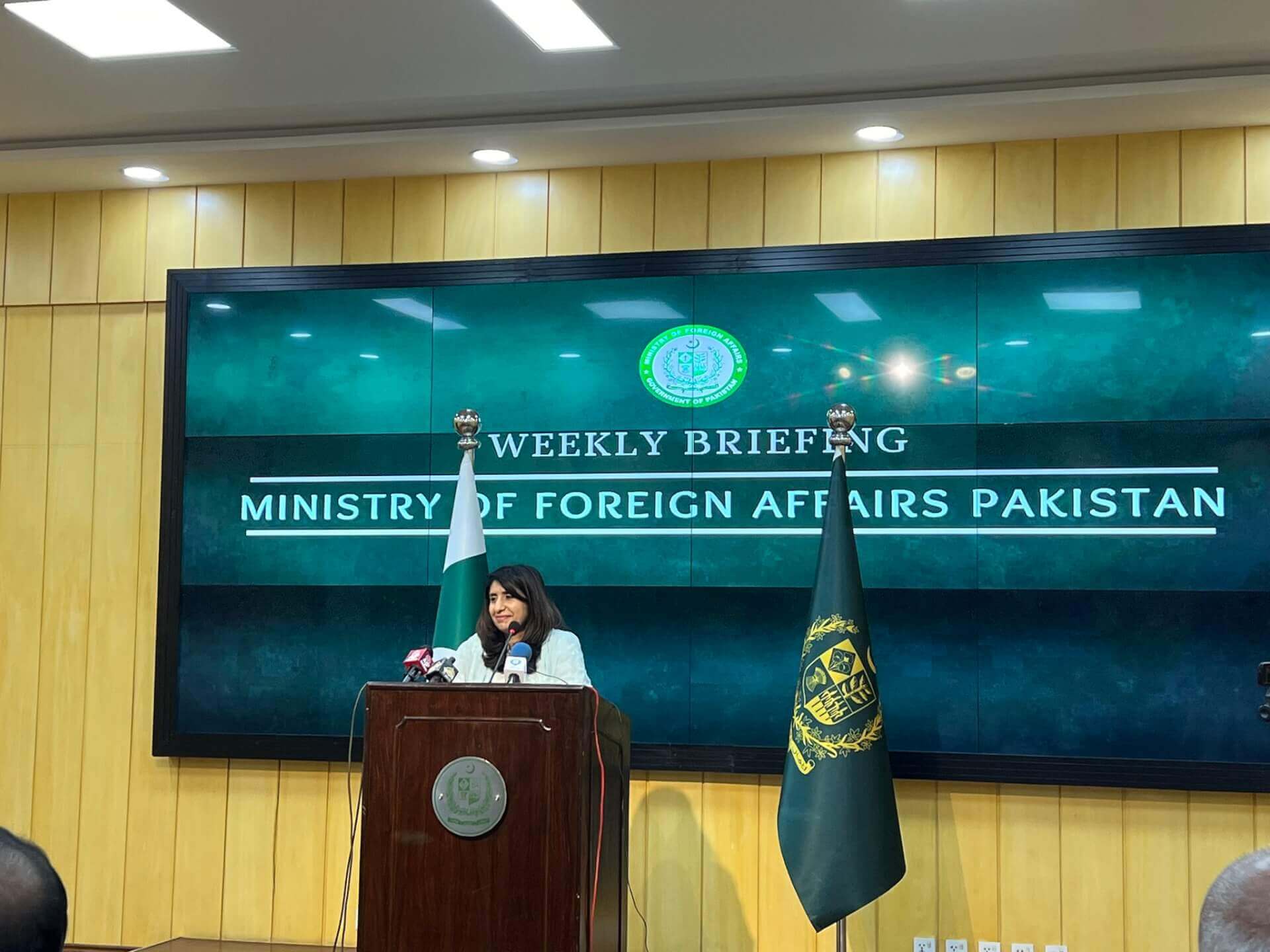Pakistan has acknowledged that India is regularly sharing updates about the water discharge towards Pakistan, as expected under the Indus Waters Treaty (IWT).
Pakistan’s Foreign Office (FO) spokesperson, Mumtaz Zahra Baloch, gave the affirmation while responding to questions regarding Pakistan’s course of action in case India refuses to accept the recent verdict of the Permanent Court of Arbitration (PCA) on the Kishenganga and Ratle hydropower projects dispute.
India Regularly Sharing Updates
Pakistan said that following the recent extraordinary rainfalls in northern India and increased water flows into Pakistan, especially in the Sutlej River, India has been sharing regular updates and reports on water discharge towards Pakistan since 9 July, as expected under the IWT.
During the media briefing, Baloch said, “Indus Waters Treaty is a very important treaty that has served both Pakistan and India well.”
Pakistan says India regularly sharing updates about floodwater flow https://t.co/778xQMeAtx pic.twitter.com/RWC1B5EgIP
— Hindustan Times (@htTweets) July 14, 2023
“It is a gold standard of bilateral treaties on water sharing.”
The spokesperson said Pakistan is fully committed to the full implementation of the IWT and hoped that India would also remain committed to the Treaty.
Pakistan acknowledged India’s commitment to the treaty at a time when there have been tons of floods from the Indian side into Pakistan owing to the incessant rains in the country’s northern region.
The Dispute
Pakistan initiated the arbitration proceedings before the Court of Arbitration in August 2016, alleging that India’s planned hydropower dams in the upstream areas of Jhelum, and Chenab, will cut flows from the river, which feeds 80% of Pakistani irrigation needs.
In retaliation, India asked the World Bank to appoint a neutral expert in October 2016. New Delhi claims the IWT permits it to establish storage facilities and run-of-the-river hydroelectric projects on the western rivers.
Then, recently, the Hague-based PCA rejected India’s objections to the 2016 procedure initiated by Pakistan concerning the 350-megawatt Kishenganga and 850-megawatt Ratle hydropower projects on rivers Jhelum and Chenab, respectively.
Subsequently, rejecting the court order legitimising the appointment of a court of arbitration to deal with the matter, India reaffirmed its position, saying that the arbitration would contravenes the provisions of the IWT.
India has rejected a ruling by The Hague-based Permanent Court of Arbitration, which accepted Pakistan’s request for arbitration over a dispute relating to the Indus Waters Treaty between both countries. Read more:https://t.co/kGonrjCNT6#India #Pakistan #IWT… pic.twitter.com/Sox2u8feKz
— Statecraft (@statecraftdaily) July 7, 2023
The IWT was signed in 1960 and gave control of the western tributaries of Indus — Chenab and Jhelum — to Pakistan while allowing India to control its eastern tributaries — Beas, Ravi, and Sutlej.
India has been in talks with Pakistan to modify the IWT, and brought a resolution to that effect in January.
Remarks on Kashmir
During the press conference, the Pakistani FO spokesperson also reaffirmed Pakistan’s stance on the right to self-determination in Kashmir.
She said, “Pakistan will continue to support its Kashmiri brothers and sisters in their just struggle against Indian oppression, till the realization of their inalienable right to self-determination; as enshrined in the relevant United Nations Security Council Resolutions.”
“India’s unabated repression over the past seven decades has failed to break the will of the Kashmiri people who have continued to strive for their right to self-determination,” Baloch remarked.
The comments came as Pakistan observed the 92nd Youm-e-Shuhada-e-Kashmir (Kashmir Martyrs Day) commemorating the martyrdom of 22 Kashmiris, who sacrificed their lives while braving the firing of Dogra forces in 1931.

